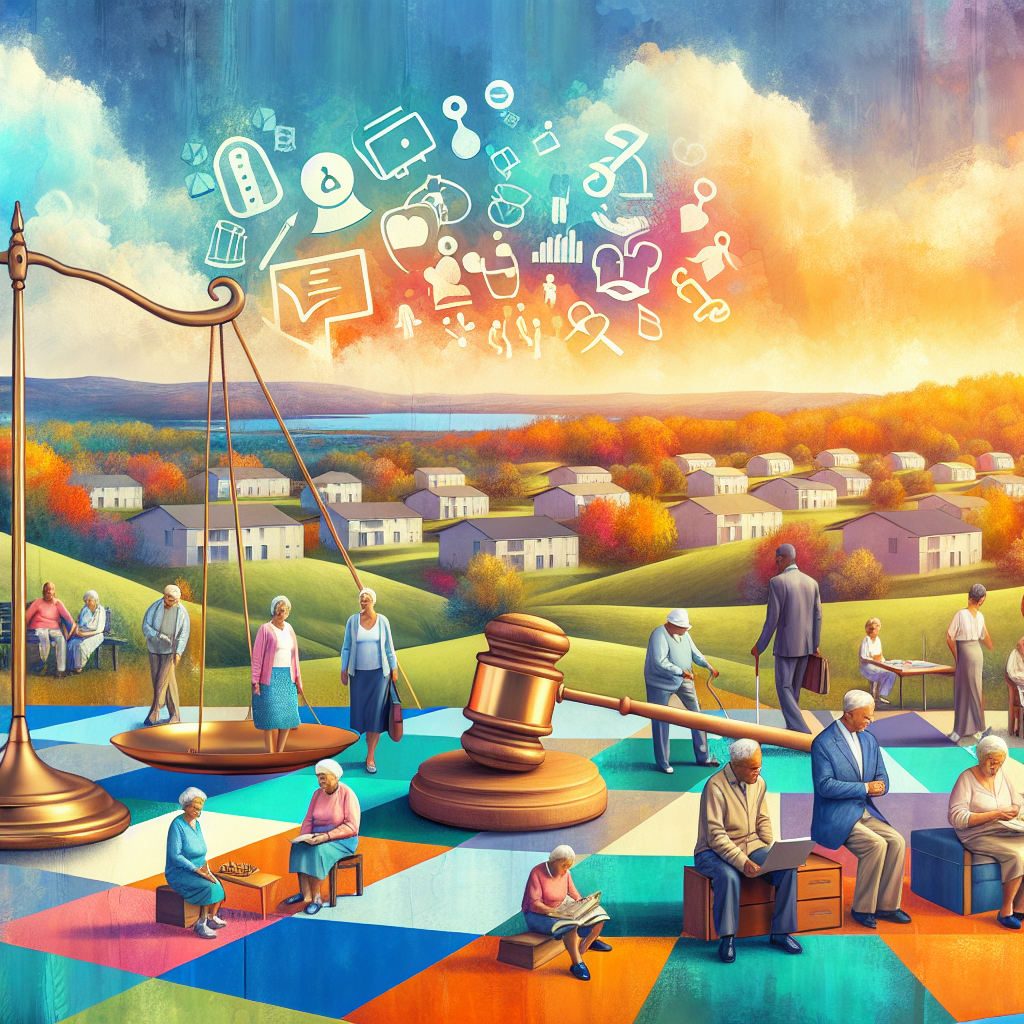Legal Rights and Protections for Older Adults
Elder Law Rights & Protections: A Comprehensive Guide
What is Elder Law?
Elder law is a specialized legal practice area that focuses on the legal rights and protections of older adults. This can include a wide range of topics, such as healthcare, housing, financial security, and estate planning. Elder law attorneys work with senior citizens and their families to ensure their rights are protected and their needs are met.
Understanding the Importance of Elder Law Rights and Protections
As people age, they may face unique challenges and vulnerabilities that require legal protection. Elder law rights and protections are essential for ensuring that older adults are treated fairly and have access to the resources and support they need. These rights and protections also aim to prevent discrimination and abuse against seniors.
Common Types of Elder Law Rights and Protections
There are various types of elder law rights and protections that aim to protect the well-being and rights of older adults. These may include:
- Age discrimination laws
- Consumer protection laws for seniors
- Healthcare and insurance laws, such as Medicare and Medicaid
- Social Security benefits
- Long-term care laws
- Estate planning laws
- Guardianship and conservatorship laws
Specific Laws and Regulations Surrounding Elder Law
There are many laws and regulations at the federal, state, and local levels that aim to protect the rights and well-being of older adults. Some of these include:
- The Age Discrimination in Employment Act (ADEA), which protects against age discrimination in the workplace.
- The Older Americans Act, which provides funding for programs and services that support older adults.
- The Fair Housing Act, which prohibits discrimination based on age in housing.
- The Affordable Care Act, which includes provisions for improving Medicare and Medicaid coverage for seniors.
- The Elder Justice Act, which addresses the issue of elder abuse and neglect.
Common Legal Issues Faced by Senior Citizens
Unfortunately, older adults may face a variety of legal issues, including those related to healthcare, housing, and financial stability. Some of the most common legal issues faced by seniors include:
- Denial of healthcare coverage or benefits
- Housing discrimination or eviction
- Financial exploitation or fraud
- Nursing home abuse or neglect
- Challenges with creating and managing an estate plan
- Difficulty accessing government benefits
- Family disputes over guardianship or conservatorship
How to Ensure Elder Law Rights and Protections are Upheld
There are several steps that seniors and their families can take to ensure their rights and protections are upheld:
- Stay informed and educated about elder law rights and protections
- Work with an elder law attorney to create and manage important legal documents, such as wills and advance directives
- Stay vigilant and report any potential abuses or violations of rights
- Join advocacy groups and stay involved in the political process to support legislation that protects senior citizens
The Role of Elder Law Attorneys in Protecting Rights and Ensuring Protections
Elder law attorneys play a crucial role in protecting the rights and ensuring the protections of older adults. They have specialized knowledge and experience in the legal issues faced by seniors and can provide valuable guidance and representation. Elder law attorneys can assist with creating and updating important legal documents, advocating for seniors’ rights, and helping to navigate complex legal processes.
Resources for Seniors and Their Families to Navigate Elder Law
There are several resources available for seniors and their families to help them navigate elder law. These may include:
- Elder law clinics or pro bono legal services
- AARP Legal Services Network
- Senior legal hotlines
- Local senior centers or agencies on aging
- Online resources and guides from reputable organizations, such as the National Consumer Law Center and the National Academy of Elder Law Attorneys
Recent Updates and Changes in Elder Law Rights and Protections
Elder law is a constantly evolving field, and laws and regulations related to seniors are frequently updated and changed. Some recent updates and changes in elder law rights and protections include:
- Increased funding for programs and services to support seniors, such as through the Older Americans Act and the Affordable Care Act
- Increased penalties for elder abuse and financial exploitation
- Updates to Medicare and Medicaid policies and coverage options
- New laws and regulations to address emerging issues, such as cyber scams targeting seniors
Why Understanding Elder Law is Essential for Seniors and Their Families
In conclusion, understanding elder law is essential for seniors and their families to protect their rights and ensure their well-being. By staying informed about laws and regulations related to healthcare, housing, and financial security, seniors and their families can better navigate the complex legal system and protect themselves against age-related discrimination or abuse. Working with an elder law attorney and accessing available resources can also provide valuable support and guidance in addressing legal issues facing seniors.




